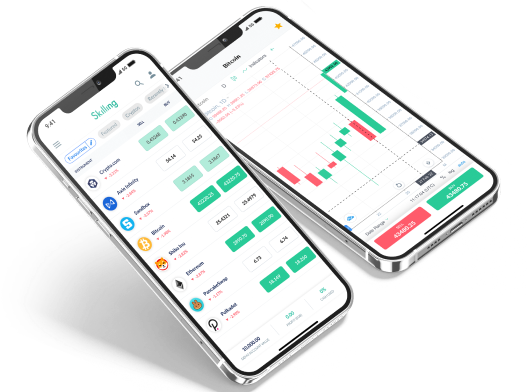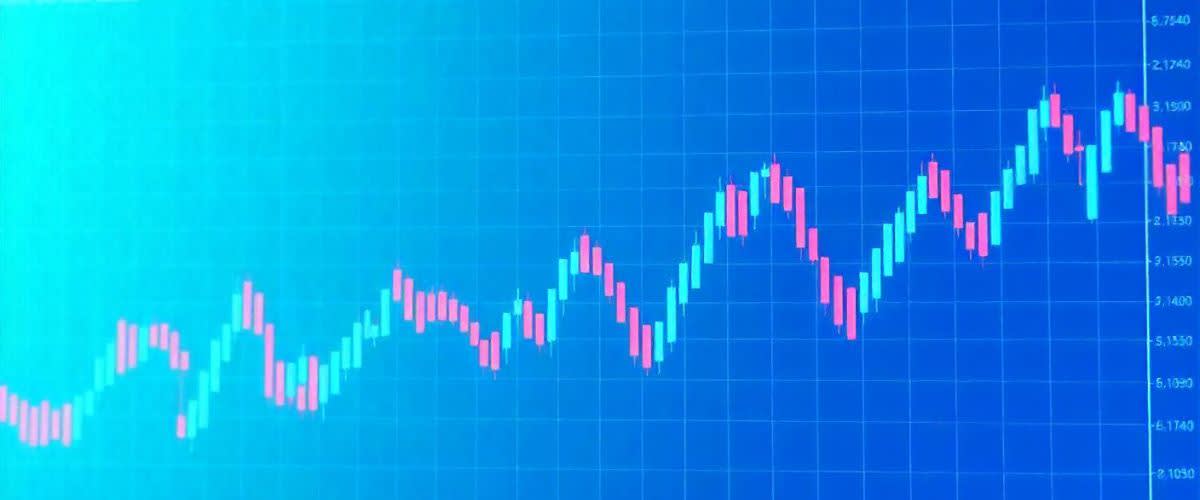

What is a bearish divergence?
Whether you're trading cryptocurrencies, stocks, Forex, or even commodities, have you ever noticed that prices keep going up, but something feels off? This could be a sign of bearish divergence. In simple terms, bearish divergence happens when the price of an asset reaches higher highs, but a technical indicator like the Relative Strength Index (RSI) makes lower highs. This mismatch suggests that while the market seems bullish, the underlying momentum is weakening. This could signal a potential reversal from an upward to a downward trend. In this article, we'll explain what bearish divergence is, provide examples, show you how to identify it in your trades and compare it to bullish divergence for a clearer understanding.
Example of a bearish divergence

This graph is used for illustrative purposes only
Suppose Ethereum price is currently trading at $2500 and begins to rise over the next few weeks, reaching $2600, $2700, $2800, $2900, and finally $3000. This upward movement indicates higher highs in the price trend, suggesting a bullish market. However, if we examine the Relative Strength Index (RSI), a different picture emerges. The RSI, which started at 70, decreases to 65, then 60, 58, 55, and finally 50, forming lower highs.
This pattern, where the price increases to higher highs while the RSI decreases to lower highs, is known as a bearish divergence. The chart above illustrates this concept clearly. The top graph shows Ethereum's price steadily climbing, while the bottom graph shows the RSI declining. This discrepancy indicates that, despite the rising prices, the market's underlying momentum is weakening.
Bearish divergence serves as a warning sign that the upward trend might not be sustainable. It suggests that the bullish sentiment is losing strength, and a price reversal could be imminent. Traders use this information to anticipate potential sell-offs, allowing them to make more informed decisions about when to exit positions or avoid entering new ones at peak prices.
How to identify a bearish divergence when trading
Here’s how to spot it:
- Check the price trend: Start by looking at the price chart of the asset. If the price is creating higher highs, it means the asset is reaching new peaks.
- Look at the indicator: Next, examine the indicator you’re using (like RSI or MACD). If this indicator is making lower highs while the price is going up, this is a bearish divergence.
- Compare peaks: Specifically, note the peaks on the price chart and the peaks on the indicator. For a bearish divergence, the price peaks should be higher, while the indicator peaks should be lower.
- Interpret the signal: This mismatch indicates that although the asset’s price is increasing, the strength or momentum behind this rise is weakening. It suggests that the upward trend might be losing steam and a price drop could be ahead.
By spotting this divergence, you can be cautious about buying or consider selling before the price potentially declines.

Bearish vs Bullish divergence
| Aspect | Bearish divergence | Bullish divergence |
|---|---|---|
| Definition | Occurs when the price makes higher highs but the indicator makes lower highs. | Occurs when the price makes lower lows but the indicator makes higher lows. |
| Price trend | The price is rising, creating new peaks. | The price is falling, creating new troughs. |
| Indicator trend | The technical indicator (e.g., RSI, MACD) is declining. | The technical indicator (e.g., RSI, MACD) is rising. |
| Signal implication | Indicates that the upward momentum is weakening. | Suggests that the downward momentum is weakening. |
| Potential action | Traders might consider selling or avoiding new buys. | Traders might consider buying or closing short positions. |
| Example | If an asset’s price hits a new high but the RSI doesn’t reach a new high, this is a bearish divergence. | If an asset’s price hits a new low but the RSI starts making higher lows, this is a bullish divergence. |
Experience Skilling's award-winning platform
Try out any of Skilling’s trading platforms on the device of your choice across web, android or iOS.

Conclusion
While a bearish divergence could signal a potential price decline, one needs to be careful when trading based on this signal alone. It’s crucial to combine bearish divergence with other technical indicators and market analysis to confirm the signal and avoid false positives. Relying solely on a bearish divergence without additional context might lead to premature or incorrect trading decisions. Always consider broader market trends, support and resistance levels, and use proper risk management before acting.
Source: investopedia.com
Are you a Skilling client yet? Create a free Skilling CFD trading account today and trade 1200+ global assets such as stocks, cryptocurrencies, Forex, commodities and more with very low spreads and fees.
What better way to welcome you than with a bonus?
Start trading with a $30 bonus on your first deposit.
Terms and Conditions apply












